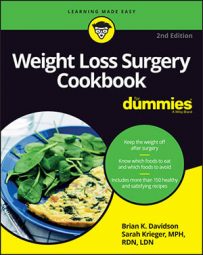You should get 48 to 64 ounces of fluid a day. Because you can't drink very much at one time, this means you need to have something with you at all times so you can be sipping.
A really good way to gauge if you're getting enough fluids is by the color of your urine. If it's pale yellow or clear, good job! If it's gold, drink more.
In addition to dark urine, other signs of dehydration include- Parched mouth
- Dry skin
- Fatigue
If you love coffee, tea, or carbonated beverages, you're going to have to make some changes. The caffeine in coffee, tea, and colas can be dehydrating, and it will be challenging enough to stay hydrated as it is. Go for decaffeinated tea or coffee, and don't add calorie-laden cream and sugar. A little skim milk and artificial sweetener should be fine. Carbonated beverages are not recommended because they can distend your pouch and lead to uncomfortable gas and bloating.
Just a word about alcohol — don't. Like the drinks mentioned earlier, alcohol is a diuretic, meaning it has a dehydrating effect on your body. You may also metabolize alcohol differently than you did before surgery. Always check with your surgeon before introducing alcohol into your diet.
Sip fluids slowly and don't use straws. Drinking too quickly can lead to nausea and a feeling of fullness and even vomiting. Straws can introduce air into your pouch and lead to gas and bloating. (Chewing gum does the same thing.)

